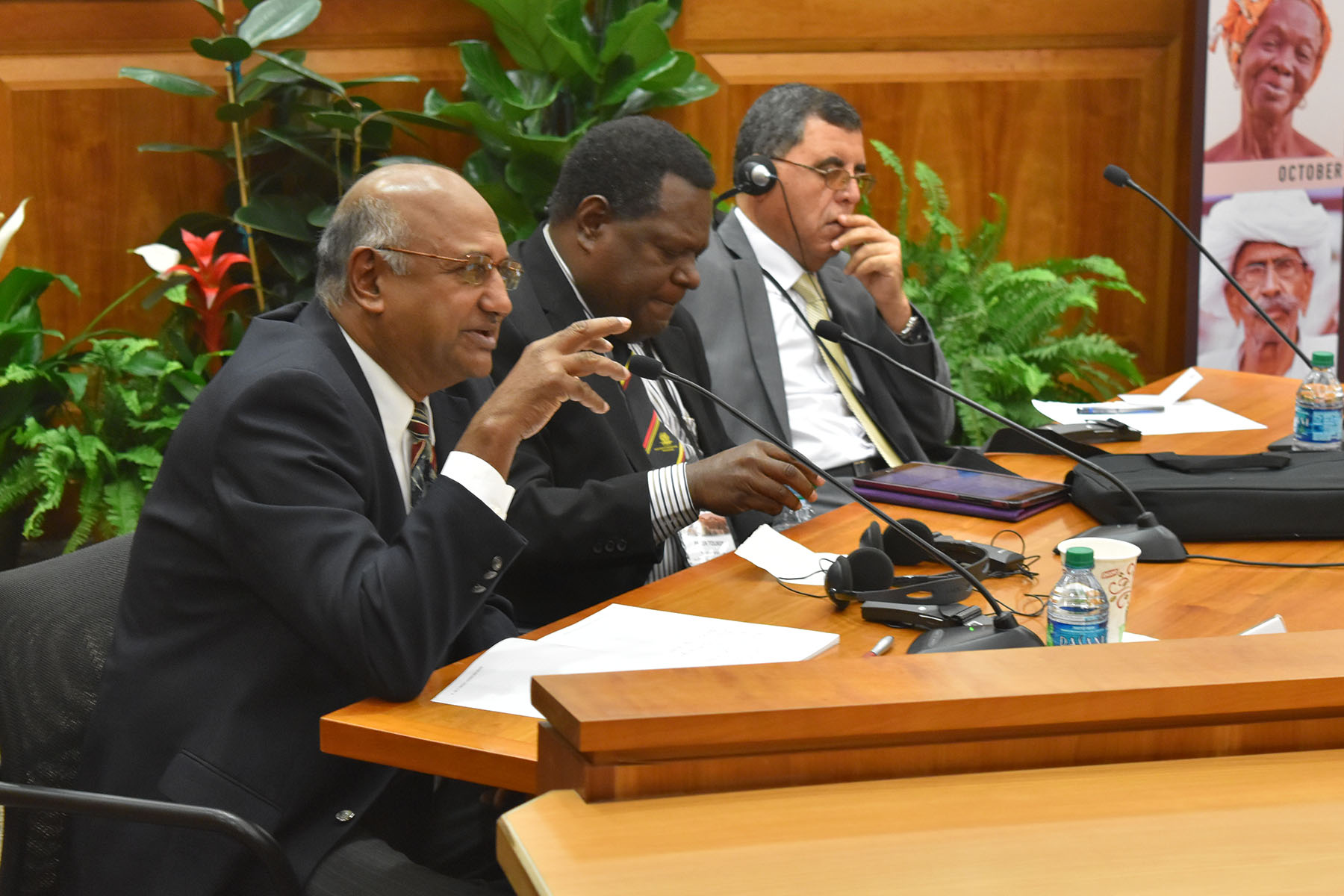Symposium 2017: Religion and Pluralism in a Changing World: Judicial Perspectives (Monday afternoon session)

by Melissa Hartman, BYU Law Student and Symposium Volunteer
The breakout session Religion and Pluralism in a Changing World: Judicial Perspectives held on Monday October 2, 2017 was moderated by B. Lynn Winmill, Chief Judge of the US District Court for the District of Idaho. Panelists included Carl Singh, Chancellor of the Judiciary of the Court of Appeals in Guyana, Peter Toliken, Justice of the Supreme and National Court of Justice in Papua New Guinea, Ahmed Ebrahim, retired justice of the Supreme Court of Zimbabwe, and Khalifeh Al Suleiman, Chief of the High Administrative Court of Jordan.
Chancellor Singh remarked on a worrying trend, explaining many countries that have constitutions as the supreme law of the state and which provide for religious freedom are violating these entitlements by state action. He cited, for instance, state action criminalizing clothing associated with particular religious groups, such as the burqa ban in France and Austria’s ban on veils. If anything explains the seeming environment of unity in Guyana, it is because the citizens recognize it is for their own good that they conduct themselves in a manner of tolerance for all religions. He articulated that the challenge in a pluralistic society is that when we try to protect all views, there are often conflicting values and that it is the role of courts to resolve such conflicts.
Justice Toliken explained that religious pluralism in Papua New Guinea has worked well and the government has not done anything to discourage that generally. He described how Christian converts have not forsaken all of their indigenous beliefs, and that Christian beliefs blended well with some of the beliefs the people already had.
Chief Judge Suleiman stated that Jordan maintains a peaceful coexistence among religions and that the government does not discriminate based on religion in implementing the constitution and rule of law in society. Islam teaches that religion cannot be forced and calls for no distinctions between denominations or the sons of Adam.
Justice Ebrahim explained that independence from the executive authority is key in enabling the judicial authority to protect rights and implement the rule of law, a condition necessary for equality. He expressed his belief that diversity and pluralism work well in Zimbabwe and feels that that phenomenon will continue to grow. One reason for this is as people read and understand more about Islam, which religion includes revealed books on Jesus Christ and the sons of David, they’ll see we are all the same people.